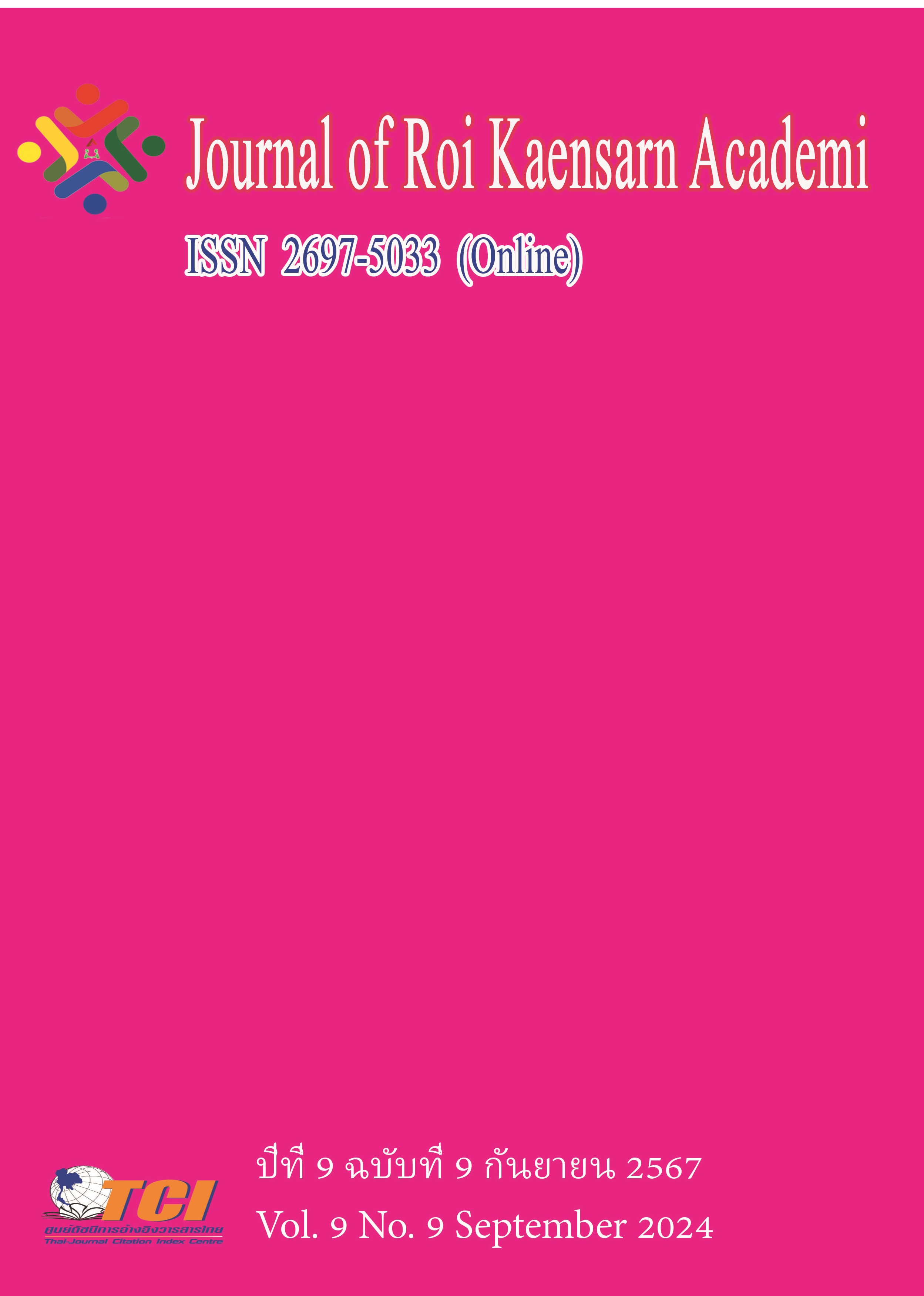The Performance Assessment for Student Affairs Management under University Student Unions in Guangdong Province
Main Article Content
Abstract
Student affairs management is one of the field for the specialization of university governance. It is not only an important content of educational administration in universities, but also the ultimate product of higher education in China. Based on it, this research aims to study the performance assessment for student affairs management under university student unions in Guangdong Province. And it is an explanatory sequential design of mixed methods in nature, which consists of both quantitative and qualitative researches at the same time. The research sample is 123 universities in Guangdong Province, the People’s Republic of China(PRC). Research instruments includes both a questionnaire and a semi-structured interview. Data collection is completed through Wenjuanxing(www.wjx.cn)-a professional platform of survey online. Quantitative data analysis is conducted by SPSS 27.0, and qualitative data analysis is completed through content analysis by Weiciyun (www.weiciyun.com) -a powerful software of qualitative research. And research results found that: (1)mean scores of 103 items in the questionnaire ranges from 3.61 to 4.14, and Standard Deviation(S.D.) of 103 items in the questionnaire ranges from 0.76 to 0.97; (2)the performance assessment model for student affairs management under university student unions in Guangdong Province,P.R.China, mainly include 7 different components, namely: 1)organizational culture; 2)character education; 3)administrative support; 4)manpower management; 5)public relation; 6)information technology and 7) system innovation, respectively; (3)as a whole, 9 interviewees in semi-structured interview hold positive attitudes towards the impact of 7 factors in student affairs management in Guangdong Province, P.R.China. Based on the research results, we can draw conclusions that: (1)holistically speaking, the performance assessment for student affairs management under university student unions in Guangdong Province, P.R.China, is at a high level, even in an increasing status; (2)the application of the performance assessment model comprising of 7 factors, is found to be appropriate, accurate and in accordance with the conceptual framework of research.
Article Details
References
Adrianna et al. (2019). The Role of Collaboration in Integrated Programs Aimed at Supporting Underrepresented Student Success in STEM. American Behavioral Scientist. (3), 325-348.
Barbara Sporn. (2006). Governance and Administration: Organizational and structural Trends. Dordrecht: Springer.
Cindy Kane. (2017). Advancing Student Leader Development Through Student Organization Advising and Institutional Support. New Directions for Student Leadership. (155), 59-70.
Catherine et al. (2023). Modern Governance. New York: The Free Press.
David Osborne & Ted Gaebler. (2016). Reinventing Government-How Does The Spirit of Entrepreneurs Reform Public Sectors(Translated by Zhou Dunren). Shanghai: Shanghai Translation Publishing House.
Fauziah A.H.et al. (2016). Le processus de planification et de formulation des politiques d’ education: theorie et pratiques. Paris: UNESCO/IIPE.
Haque Shahabul et al. (2022). Chaos: Making a New Science. New York: Penguin.
Jetta Frost.(2016). Triumph or tragedy:Comparing student engagement levels of members of Geek-letter organizations and other students. Journal of College Student Development. 43 (5), 643-663.
Justin Patrick. (2022). Student Leadership and Student Government. Research in Educational Administration & Leadership. 7 (1), 1-37.
Jeffrey Kennedy et al. (2023). The Challenge of Complexity, Self-Organization and Dissipative Structures. Austin: University of Texas Press.
Jin Peipei & Nie Tingting. (2024). The Current Situation, Hot Spots, and Trends of Research on Student Affairs Management in Chinese Universities: Visualization Analysis Based on both CNKI and CiteSpace. Theory and Practice of Contemporary Education. (1), 64-73.
Krejcie,R.V., &Morgan,D.W. (1970). Determining Sample Size for Research Activities. Educational and Psychological Measurement. 30 (3), 607-610.
Liu Jinli. (2019). Review on the Studies of Student Affairs Management in Universities. Studies in Ideological Education, (S2), 143-146.
LJO’ Toole Jr. & KJ Meier. (2021). Walking the Walk as well as Talking the Talk: Replication and the Normal Science Paradigm in Strategic Management Research. Strategic Organization. 5 (3), 283-296.
Li Haoquan. (2023). Studies on the Activities of Student Associations in Peking University during the Period of Republic of China(1912-1949). Dissertation. College: Central China Normal University.
Mullen P.R.et al. (2018). Job Stress, Burnout, Job Satisfaction and Turnover Invention among Student Affairs Professionals. College Student Affairs Journal. (1), 94-108.
Peter F. Drucker. (2018). Management of Non-profit Organizations(Translated by Wu Zhenyang). Beijing: China Machine Press.
Rachel Brooks et al. (2016). Guidelines for the Investigation of Mediating Variables in Business Research. Journal of Business and Psychology. 27 (1).
Song Guangjun. (2018). Experience and Implications of Student Affairs Management in American Universities. The Party Building and Ideological Education in Schools. (9), 93-95.
Sun Yan. (2019). Reform of UN: On the Perspective of Organization Performance. Dissertation. College: China University of Political Science and Law.
Tosun M U & Basgoze P. (2015). The Service Quality Perception in Student Affairs: A Single Institutional Experience. Egitim Fakultesi Dergis. (3), 131-146.
Tang Haibo & Ding Yanhong. (2018). Status Quo and Strategies on the Professionalization of Student Affairs Management in Universities. Modern Education Management. (11), 124-128.
Wang Xia & Guo Yuelan. (2019). Research on Student Affairs Management in World-class Universities. Nanjing: Nanjing University Press.
Wang Yaqiong. (2020). Student Affairs Management as an Research Field: Concept, Nature and Its Developmental Trend. Heilongjiang Researches on Higher Education. (5), 16-19.
Wei Xiaoyu. (2022). Status Quo, Hot Spots and Future Trends on Leadership of International Teachers in Recent Twenty Years. Heilongjiang Researches on Higher Education, (8), 74-82.
Zhu Jiexiao. (2018). The Research on Performance Evaluation of College Student Organization Governance and Influencing Factors-based on Practice Analysis of 13 Undergraduate Colleges in Shanghai and Zhejiang Region. Dissertation. College: East China Normal University.
Zhang Xiaojing. (2018). Review of Professional Competency Areas for Student Affairs Practitioners(2015) in American Universities. Studies in Ideological Education. (9), 138-141.
Zhang Qiang et al. (2021). Review on Studies of University Student Affairs Management in China. Journal of Nanjing University of Science and Technology (Social Sciences). (3), 86-89.
Zhu Wei. (2023). Comparison and Its Implications on Student Affairs Management in Universities of Developed Countries. Heilongjiang Researches on Higher Education. (06),150.
Zhou Qian & Hu Zhixia. (2024). Research on Student Affairs Administration in American Universities: Progress, Trends and Characteristics. Education and Teaching Research. (1),73-90.

